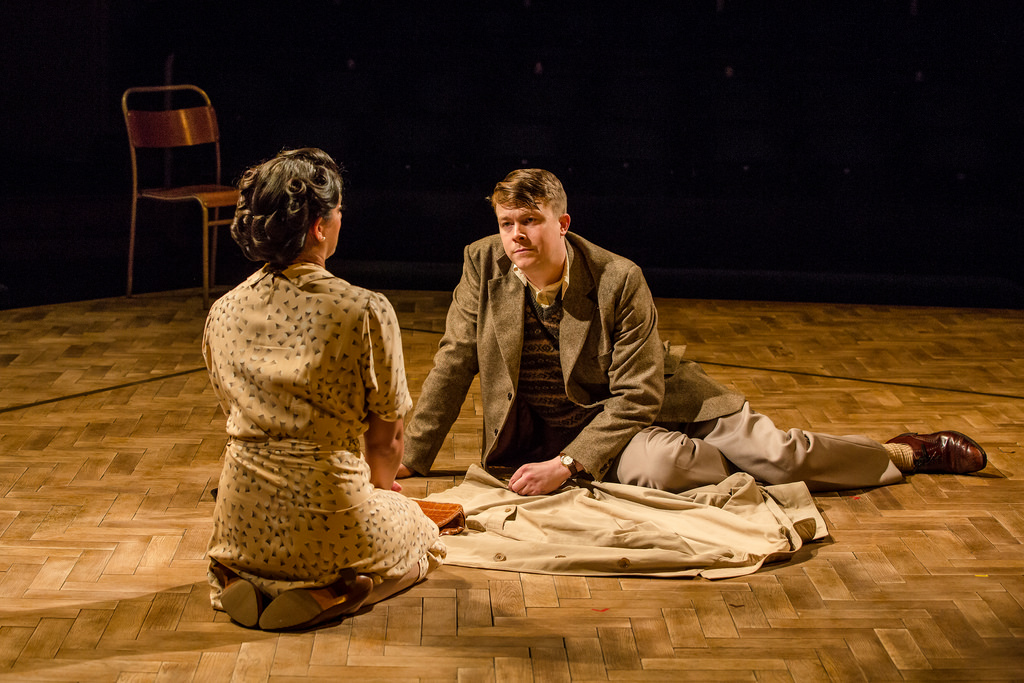Breaking the Code at the Royal Exchange, Manchester
reviewed for The Times, 8 November 2016
Benedict Cumberbatch was a wiry, wary genius. Derek Jacobi was elfin, unpredictable, flickering with nervous energy. Daniel Rigby’s take on Alan Turing, at Manchester’s Royal Exchange, is more of a lumbering chap. Perhaps he’s less convincing as an amateur runner, rather more as the progenitor of a generation of sedentary hackers.
So much the better. Breaking the Code is Hugh Whitemore’s story of the race to decode the Enigma machine, and of Turing’s eventual prosecution for gay sex by the nation he helped to save. On stage and screen, it has been Jacobi’s role — his performance in the 1996 BBC adaptation was key to Turing’s modern rehabilitation as tragic icon. More recently, Cumberbatch told the same story in The Imitation Game, with a new script by Graham Moore. Rigby, in Robert Hastie’s new production, upends expectations and makes the role endearingly his own.
Turing was always an unlikely sex symbol. Rigby’s physical transformation has shades of Neville Longbottom, Harry Potter’s hapless school friend. One nigh expects Phil Cheadle’s scowling policeman to flush his head down the lavatory, after yet another lecture on the beauty of mathematics. Loneliness is central to Turing’s downfall. In an early scene, he brings a beautiful, athletic school friend (Dimitri Gripari) home for the holidays — the hero worship is palpable. We flash forward to the present, and Turing is still hankering after a touch of beauty, this time fixing — disastrously — on the unpolished masculinity of Harry Egan’s unemployed hustler, Ron.
No wonder Turing dreams of freeing the spirit from the body, downloading man’s intelligence to “the electronic brain”. Thus the centrepiece of Ben Stones’s design, lit by Richard Howell, is a lattice of cylindrical lights, implying blinking synapses or binary code. Perhaps it’s a model of pure thought, free of our “too too solid flesh”. Perhaps it’s the bars of a prison cell.
With such shrewd design on offer, it’s a shame that Whitemore’s play doesn’t lend itself well to the Royal Exchange’s in-the-round layout. Hastie coaxes solid performances from his ensemble — especially Raad Rawi as Dillwyn Knox, Turing’s donnish boss of Bletchley Park — but in a play full of earnest dialogues it would have been nice to see more of our interlocutors’ faces.
Breaking the Code was written in 1986. Nowadays, we’re all wired up to the hive mind. Turing, as a mathematician, understood society’s systematic rules; he just couldn’t live within them. So what would Mark Zuckerberg’s algorithms make of Turing’s private data? Perhaps a 21st-century playwright would make such questions more explicit, but for a portrait of Turing’s personal tragedy you’re unlikely to do better than Whitemore’s play.







